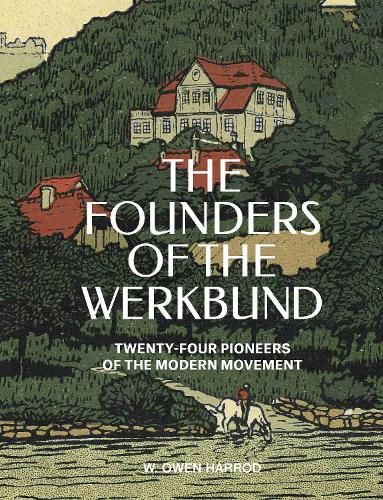Readings Newsletter
Become a Readings Member to make your shopping experience even easier.
Sign in or sign up for free!
You’re not far away from qualifying for FREE standard shipping within Australia
You’ve qualified for FREE standard shipping within Australia
The cart is loading…






This book is the first, in any language, to provide a comprehensive study of the founders of the German Werkbund: the 12 artists and 12 firms represented at the establishment of the organization in 1907. Although these 24 were not always in agreement, they were committed to a common cause: strongly influenced by the Arts and Crafts movement, their aim was to inspire good design and craftmanship in mass-produced goods and architecture. Together they put forward a dialogue about the nature of German culture, both visual and intellectual, and about the character of German design. They were representatives of the regional centres of Germanic culture - in Berlin, Munich, Dresden, Stuttgart, Karlsruhe, Darmstadt, Weimar, and Vienna - and of craft-based industries throughout Central Europe. The 24 reflected the distribution of their common, German-speaking, socio-economic identities: they were a microcosm of the society they hoped to reform.
In shedding light on these highly influential individuals, who were the fore-runners of the Bauhaus, modern architecture and the international style, this book provides a new understanding of how the Werkbund functioned, how it pursued its aims, and how it achieved such a profound and enduring legacy.
$9.00 standard shipping within Australia
FREE standard shipping within Australia for orders over $100.00
Express & International shipping calculated at checkout
This book is the first, in any language, to provide a comprehensive study of the founders of the German Werkbund: the 12 artists and 12 firms represented at the establishment of the organization in 1907. Although these 24 were not always in agreement, they were committed to a common cause: strongly influenced by the Arts and Crafts movement, their aim was to inspire good design and craftmanship in mass-produced goods and architecture. Together they put forward a dialogue about the nature of German culture, both visual and intellectual, and about the character of German design. They were representatives of the regional centres of Germanic culture - in Berlin, Munich, Dresden, Stuttgart, Karlsruhe, Darmstadt, Weimar, and Vienna - and of craft-based industries throughout Central Europe. The 24 reflected the distribution of their common, German-speaking, socio-economic identities: they were a microcosm of the society they hoped to reform.
In shedding light on these highly influential individuals, who were the fore-runners of the Bauhaus, modern architecture and the international style, this book provides a new understanding of how the Werkbund functioned, how it pursued its aims, and how it achieved such a profound and enduring legacy.